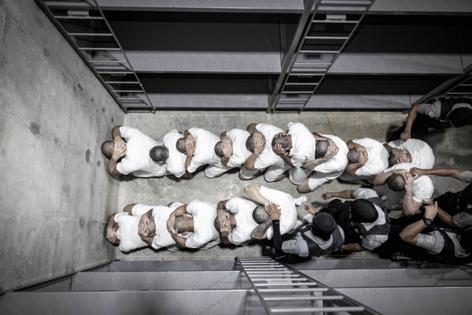Federal judge extends order restricting Trump's use of Alien Enemies Act in Colorado
Published in News & Features
DENVER — A federal judge in Denver has extended the temporary restraining order restricting the Trump administration from deporting Venezuelan immigrants from Colorado under the 18th-century Alien Enemies Act.
In a new order issued Tuesday, U.S. District Judge Charlotte Sweeney said the Trump administration and immigration officials must provide a 21-day notice if they plan to use the act to deport Venezuelans detained in Colorado. Detainees must also be given a chance to contest their removal.
Sweeney said the current terms of the restraining order will expire May 6, but may be extended at her discretion.
The restraining order granted last week blocked federal officials from removing “noncitizens in custody in the District of Colorado who were, are or will be subject to” President Donald Trump’s invocation of the 1798 Alien Enemies Act from both the state and the country.
“Such notice must state the government intends to remove individuals pursuant to the Act and Proclamation,” Sweeney wrote of the new 21-day requirement. “It must also provide notice of a right to seek judicial review, and inform individuals they may consult an attorney regarding their detainment and the government’s intent to remove them. Such notice must be written in a language the individual understands.”
Sweeney said the government failed to meet these standards before, at most providing one phone call to detainees and a verbal notice of what was happening that wasn’t guaranteed to be in a language they understood.
The government’s previous notice procedure also gave no timeframe for the removal process and didn’t inform the individual how to — or even that they could — contest their removal, Sweeney said.
Federal officials still cannot remove immigrants from Colorado to avoid complying with the restraining order, she wrote.
Sweeney approved the first temporary restraining order last week after the American Civil Liberties Union sued President Donald Trump and members of his administration on behalf of two Venezuelan men, “and others similarly situated,” who have been accused of being part of the Tren de Aragua gang.
The ACLU said the men feared “imminent risk of removal” under Trump’s proclamation “without any hearing or meaningful review.”
According to Tuesday’s order, the ACLU has officially requested the court to allow its lawsuit to proceed as a class action on behalf of the entire group affected by Trump’s proclamation. Government officials have until April 28 to respond to the ACLU’s motion.
When Trump used the proclamation to invoke the Alien Enemies Act in March, he said Venezuelans who are members of the TdA gang and who are not lawful residents of the U.S. “are liable to be apprehended, restrained, secured and removed as Alien Enemies.”
The administration has used the act to send immigrants to a notorious mega-prison in El Salvador — including, according to ACLU of Colorado legal director Tim Macdonald, at least 11 Colorado residents.
While government attorneys said during a Monday hearing that immigration authorities are not currently trying to remove the two Venezuelan plaintiffs under the Alien Enemies Act, Sweeney said that could change “at any time.” There “is no definite evidence” that immigration officials won’t change their status in the coming weeks, she wrote Tuesday.
“The consequences here would be extremely grave if I denied the (temporary restraining order) and two days later, upon finding ‘new evidence,’ these two individuals are designated as TdA and subject to removal,” Sweeney said during Monday’s hearing.
She said Tuesday that the restraining order does “little more” than ensure that the government adheres to the requirements already laid out by law and the U.S. Supreme Court: to give people enough time and notice to pursue relief through due process.
Sweeney also wrote Tuesday that “skepticism” of Trump’s proclamation “is required.”
The basis of the Alien Enemies Act and Trump’s use of it in his proclamation do not match up, the judge wrote.
_____
©2025 MediaNews Group, Inc. Visit at denverpost.com. Distributed by Tribune Content Agency, LLC.







Comments